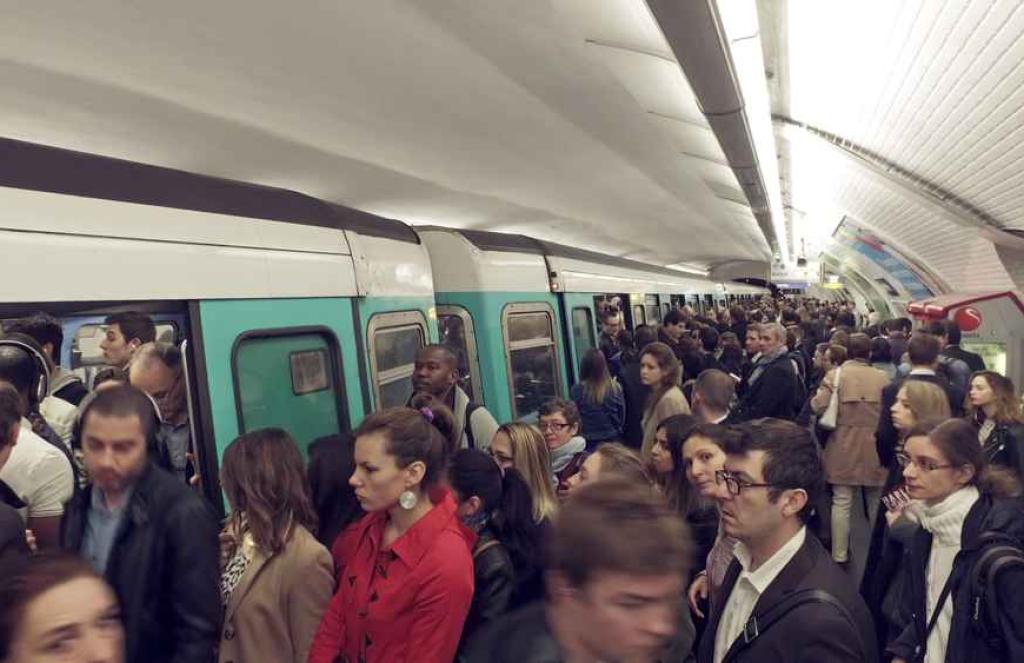Thessaloniki gets ready for its metro launch in November
The underground rapid transit lines have been under construction for almost two decades due to various project delays
 TheMayor.EU logo
TheMayor.EU logo 
Next summer, the Paris Metro will be even more crowded than usual thanks to an influx of Olympic Games tourists, Source: Depositphotos
The price of monthly passes, however, will remain the same so that regular commuters won’t have to worry
Paris has been going through all sorts of radical and at times uncomfortable shifts in its preparations for the upcoming 2024 Olympic Games, which the French capital will host in the summer of next year. The latest such shift that is about to raise eyebrows is the announcement by the Paris region’s transport authority that it will raise the price of a Metro ticket from the current 2.10 euros to 4.00 euros!
Talk about inflation – the fare price hike is almost double and certainly unheard of. Luckily, it will only apply during the hosting period of the Olympic and Paralympic Games – more specifically from 20 July to 8 September.
The price surge is defended as a way to help the local transport network adjust and cope with the sudden influx of tourist crowds, which will swarm over the summer to the French capital. There are estimates that 10 million people will visit the city, which will require a boost in the public transport services.
Visitors will also have the chance to purchase 10-ticket coupons, but these will also double in price – from 16.90 currently to 32 euros.
That’s why a better option might be to arm oneself with a day pass for 16 euros or a weekly pass for 70 euros, which will give visitors better freedom to discover the charms of the French capital and follow the sports events regardless of which part in the city they are located.
One might also wonder if the eye-watering metro fare price hike won’t cause the usually restive French public to rise in violent protest.
It is out of the question that people living in the Paris region should pay for the extra cost" brought on by the Olympic Games and estimated at 200 million euros, assured Valerie Pécresse, head of the Paris region's transport authority, as quoted by France24.
The officials have stated that the monthly travel passes used by residents will not be affected by the price rises.

The underground rapid transit lines have been under construction for almost two decades due to various project delays

Now you can get your wine in Talence by paying directly in Bitcoin

That’s because the state has to spend money on updating the railway infrastructure rather than subsidizing the cost of the popular pass

Rethinking renewable energy sources for the urban landscape

The examples, compiled by Beyond Fossil Fuels, can inform and inspire communities and entrepreneurs that still feel trepidation at the prospect of energy transition

Now you can get your wine in Talence by paying directly in Bitcoin

The 10th European Conference on Sustainable Cities and Towns (ESCT) sets the stage for stronger cooperation between the EU, national and local level to fast track Europe's transition to climate neutrality.

At least, that’s the promise made by the mayor of Paris, Anne Hidalgo

The underground rapid transit lines have been under construction for almost two decades due to various project delays

At least, that’s the promise made by the mayor of Paris, Anne Hidalgo

Hostal de Pinós is located in the geographical centre of the autonomous region

Despite its church-y name, the district has long been known as the hangout spot for the artsy crowds

Urban dwellers across the EU are having a say in making their surroundings friendlier to people and the environment.

Forests in the EU can help green the European construction industry and bolster a continent-wide push for architectural improvements.

Apply by 10 November and do your part for the transformation of European public spaces

An interview with the Mayor of a Polish city that seeks to reinvent itself

An interview with the newly elected ICLEI President and Mayor of Malmö

A conversation with the Mayor of Lisbon about the spirit and dimensions of innovation present in the Portuguese capital














